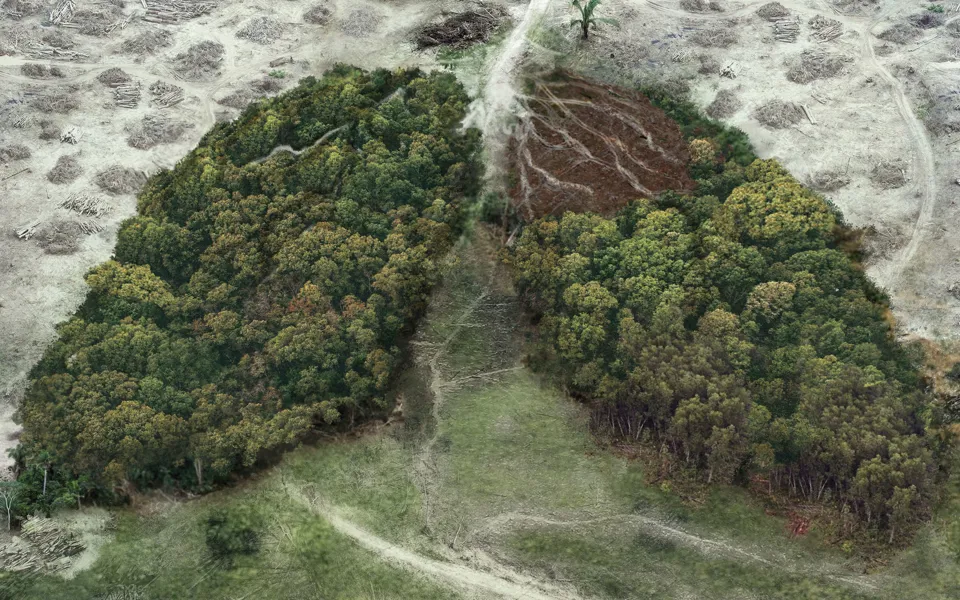
Helping to put the brakes on deforestation
08 Dec 2021
eforestation is one of the key ecological challenges faced in today’s world. According to figures published by the Food and Agricultural Organization of the United Nations (FAO), between 1990 and 2020, the area of primary forest worldwide decreased by more than 80 million hectares.
To put this in perspective, this equates to the total land area of Mozambique, the 35th largest country in the world. The FAO estimates that the current rate of deforestation is 10 million hectares per year. If it continues at the same rate, the world will lose forest cover area larger than India, the seventh largest country in the world, by 2050.
But why does this matter? The impacts of deforestation are wide-ranging and threaten the overall health of the ecosystem. Some of the key of deforestation include:
-
Biodiversity loss – One of the most devastating results of deforestation is the loss of animal and plant species linked to the damage caused to their habitats. Around 70% of land animals and plant species live in forests. Deforestation causes the depletion of species that are known and unknown to us.
-
Climate change – Deforestation is also associated with accelerated climate change because of the removal of carbon sinks. Furthermore, it leads to direct changes in the local climate. Deforestation results in a more drastic temperature variation from day to night, much like a desert, which is a further stressor to the animal and plant species in the area.
-
Other environmental impacts – Deforestation is a direct driver to soil erosion because of the reduced amount of water in the atmosphere and the weakened retention of water and topsoil. The barren land is less fertile and more susceptible to flooding.
-
Non-environmental impacts – Finally, indigenous communities living in the rainforests are losing their homelands to deforestation. Their ability to sustain a livelihood is threatened as they are dependent on the forest.
The key drivers for deforestation include agricultural expansion and logging for wood and fuel, manufacturing and construction. Through the imports of agricultural commodities responsible for deforestation, developed economies such as the EU play an indirect role in this process. Therefore, it is important to ensure that products placed on our internal markets are not linked to deforestation.
What actions are being taken?
At COP26, more than 100 countries representing more than 85% of the world’s forests committed to halting and reversing deforestation and land degradation by 2030. A week later, the EU proposed a regulation to minimise EU-driven deforestation and forest degradation. The proposed regulation recognises that the main driver of deforestation and forest degradation is the expansion of agricultural land, which is linked to the production of commodities imported by the EU, including soy, beef, palm oil, wood, cocoa and coffee. The proposed regulation requires that importers and domestic operators introduce due diligence systems to ensure that ‘deforestation-free’ products are placed on the EU market. The regulation is expected to have help reduce deforestation, biodiversity loss and GHG emissions.
Ricardo’s role
Ricardo, working with Wood, Trinomics, the UN Environment Programme World Conservation Monitoring Centre, Wageningen University and Research and Tyrsky, supported the European Commission with a study to support the fitness check of existing EU legislation tackling illegal logging and a second one to support the impact assessment for the proposed regulation.
Ricardo led on the former, evaluating the existing due-diligence-based EU Timber Regulation (EUTR) and the Forest Law Enforcement, Governance and Trade Regulation (FLEGT). The fitness check study found that the due diligence mechanism used in the EUTR was an effective solution, but that FLEGT did not sufficiently prevent deforestation because of low uptake and slow implementation.
These conclusions fed into the study supporting the impact assessment, where Ricardo provided further analysis to policy options employing the due diligence mechanism. Other options considered included mandatory benchmarking, mandatory certification and mandatory labelling. The study recommended a combination between due diligence systems and mandatory benchmarking used to identify higher risk imports. This has the potential to reduce the EU-driven deforestation by an estimated 45%.
It should be noted that the EU is responsible only for part of the total deforestation worldwide, and further action is required from other advanced economies.




 Follow Ricardo plc for regular updates
Follow Ricardo plc for regular updates




